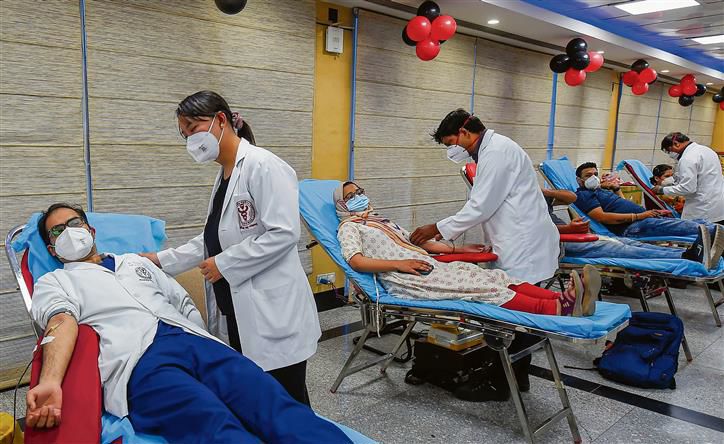Sangeeta Kumari & Ratti Ram Sharma ONE unit (350-450 ml) of donated blood can save up to three lives. Chandigarh-based Alka Chaudhary (40) has been one such grateful recipient all her life. Diagnosed with thalassaemia major when she was just three months old, Alka receives 2 units of blood every month.
In India, where someone needs blood transfusion every 2 seconds, approximately 14.6 million units of blood are required annually. But there is always a shortage of around 1 million units as transfusions are needed for accidental trauma surgeries, major operations and for pregnancy-related complications.

People with sickle-cell disease, anaemia, thalassaemia and haemophilia also need transfusions regularly. Voluntary, unpaid-for donors remain the most trusted source to meet this huge demand, as was emphasised on the World Blood Donation Day (June 14). One out of every three persons needs timely access to safe blood during his/her lifetime.
The numbers though remain low as over 85 per cent of young Indians (18-25 years) have never donated blood. Most people do not donate blood because of lack of awareness and misconceptions about donation. Reasons also include lack of clarity about the donation process, which typically takes about 45 minutes to an hour, and inaccessibility to blood donation sites.
There are many myths that need to be dispelled. Blood donation doesn’t cause any weakness, as the body replenishes the lost fluid within 24-48 hours. Nor is it painful, as there’s o.























